
I well remember my first bear encounter when I was still a very young boy. The only bear I had ever seen prior to this encounter was a drawing in a childhood storybook in Holland. My family immigrated to Canada from Holland in the early fifties and moved to a remote hunting and fishing lodge on a lake in north-central British Columbia. My mother worked at this lodge and it was here that I was given my first job at the age of 10.
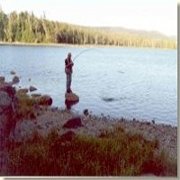 Many years ago, on a sunny fall Sunday morning, when both of my two sons were still very young, I decided to take my wife and sons fishing for the day. I was living in north central British Columbia at the time and a friend had told me about a serene, but remote, lake with lots of hungry, one pound trout, about 100 miles south west of Prince George. My friend also had told me that this lake was fairly inaccessible and that the only possible way to drive in there was with a 4-wheel drive vehicle,
Many years ago, on a sunny fall Sunday morning, when both of my two sons were still very young, I decided to take my wife and sons fishing for the day. I was living in north central British Columbia at the time and a friend had told me about a serene, but remote, lake with lots of hungry, one pound trout, about 100 miles south west of Prince George. My friend also had told me that this lake was fairly inaccessible and that the only possible way to drive in there was with a 4-wheel drive vehicle,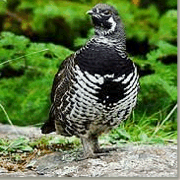 What if you are in an emergency situation in the middle of nowhere, with no weapon available, and find that you need to eat something to survive? Out in the wild, there are many food sources available. All you need to do is look. While porcupine has traditionally been an old trapper standby, their numbers have steadily diminished over the past several years. The next best thing though, is the grouse. They are a common bird to find in the back country,
What if you are in an emergency situation in the middle of nowhere, with no weapon available, and find that you need to eat something to survive? Out in the wild, there are many food sources available. All you need to do is look. While porcupine has traditionally been an old trapper standby, their numbers have steadily diminished over the past several years. The next best thing though, is the grouse. They are a common bird to find in the back country,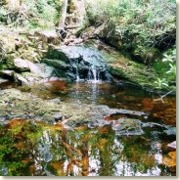 Many years ago, I bought a number of 160 acre parcels sight unseen on the northern part of Vancouver Island in British Columbia. These properties were very remote and inaccessible by road. To view them, I would either have to take a helicopter to the properties or hike into the properties and spend a few nights under the stars which, while I prefer, I did not have time for. For about 15 years, I did not have time to travel to these properties,
Many years ago, I bought a number of 160 acre parcels sight unseen on the northern part of Vancouver Island in British Columbia. These properties were very remote and inaccessible by road. To view them, I would either have to take a helicopter to the properties or hike into the properties and spend a few nights under the stars which, while I prefer, I did not have time for. For about 15 years, I did not have time to travel to these properties,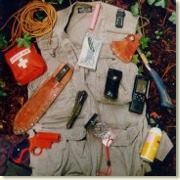 In my seven day survival vest, I carry many things, including 100 feet of thin strong nylon rope which I store in the back of my vest. Rope is very handy out into the bush. I have used it not only just for camping, but it has gotten me out of some very tight situations.
In my seven day survival vest, I carry many things, including 100 feet of thin strong nylon rope which I store in the back of my vest. Rope is very handy out into the bush. I have used it not only just for camping, but it has gotten me out of some very tight situations.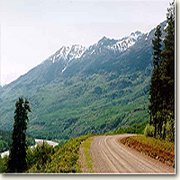 I have had hypothermia a number of times in extreme circumstances and conditions, but the experience that stands out the most in my mind is a hiking/hunting trip I took some years ago with my oldest son Dean, when we went to a very remote area of northwestern British Columbia for a ten day hunt.
I have had hypothermia a number of times in extreme circumstances and conditions, but the experience that stands out the most in my mind is a hiking/hunting trip I took some years ago with my oldest son Dean, when we went to a very remote area of northwestern British Columbia for a ten day hunt.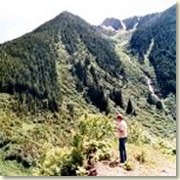 It happens to the best of us. You are enjoying a marked trail, and decide to go a little further than you should into the unmarked woods. Maybe you misread a map or your compass settings, and wind up going the exact opposite way than you should. And all of a sudden, you find yourself in an unfamiliar setting, with no idea how to get home. That’s right, you’re LOST!
It happens to the best of us. You are enjoying a marked trail, and decide to go a little further than you should into the unmarked woods. Maybe you misread a map or your compass settings, and wind up going the exact opposite way than you should. And all of a sudden, you find yourself in an unfamiliar setting, with no idea how to get home. That’s right, you’re LOST!